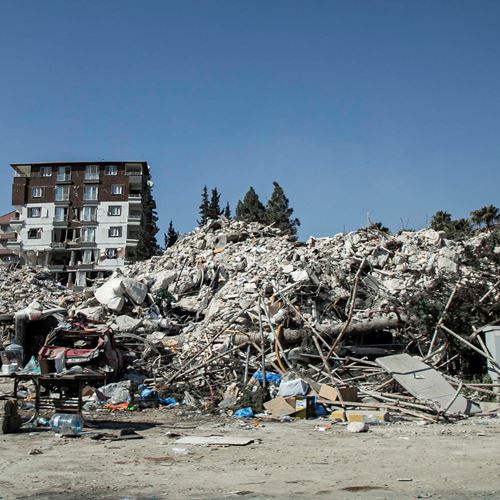News
Protection of Civilians Week: spotlight on Türkiye
The context in Türkiye is characterised by a tight policy environment. Refugees in Türkiye, particularly those impacted by the earthquake, experience heightened protection risks and made many have to rely on adverse coping strategies.

DRC highlights three key protection concerns in Türkiye today.
Complications in access to protection status and essential services
The need for legal guidance has intensified due to complications in access to status determination procedures, as well as certain practices that has made it difficult to maintain refugee status.
Complications in status determination: Due to the complications in access to asylum procedures, persons of concern may not be able to lodge a claim. As such, would-be applicants may feel discouraged from doing so. In the case of lack of status, individuals experience barriers to access to public services such as education and healthcare.
Difficulty maintaining refugee status: Administrative processes such as the requirement of address registration leads to difficulty in maintaining refugee status, resulting in cascading risks, including loss of social assistance, as well as barriers to access to public services.
Gaps in protection programming and legal aid
The protection and legal counselling needs of refugees remain high, but overall donor funding is limited. Diminished funding for protection services broadly, and legal aid specifically is making it harder for displaced people to gain or maintain refugee status. The tight policy environment creates a growing need for legal guidance, with fewer organizations able to meet that need.
The 2023 earthquakes' impact
Two years after the 6 February 2023 earthquakes, roughly 600,000 people still reside in camps. Living conditions vary between these camps, with some sites facing overcrowding and inadequate water, sanitation, and hygiene infrastructure. Problems in the housing market make it problematic for refugees outside of camps to maintain active protection status due to the difficulty of finding affordable housing. Overcrowding, inadequate lighting, and the absence of secure private spaces exacerbate the risk of gender-based violence.
Psychological violence affects 90% of reported GBV cases and 65% of adult women disclose some form of GBV yet shelters and counselling centres destroyed in the quake have not been rebuilt at scale. Children face layered risks: economic distress drives a rise in child labour, early marriage, and school dropout.


